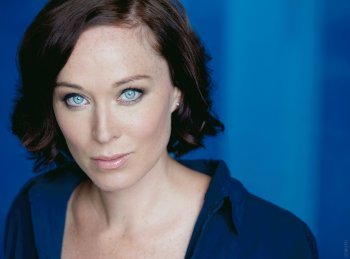It is part of many high school curriculum. It has been adapted to film, television, opera, novels, and even comics. Over the centuries, it has attracted some of the most renowned actors to its central roles. It contains many quotable lines including “double, double, toil and trouble” and “out damn spot!”. Believed to be cursed, it is known simply as “The Scottish Play” by those who perform it.
If you haven’t already guessed, we’re talking about Macbeth. One of the Bard’s most popular tragedies which, despite being in an age of ‘spoiler alert’ histrionics, keeps audiences coming back, despite knowing how it ends.
It is also the opener to this year’s Bard on the Beach Shakespeare Festival, playing in repertory with one of Shakespeare’s most popular comedies, As You Like It.
Directed by Chris Abraham from Toronto’s Crow’s Theatre, it is a project he is relishing, far from the distractions of his life back east.
“My life in Toronto is pretty fully with family life and the demands of an artistic director running a company, so I’ve been loving the complete immersion into working on Macbeth,” he says.
And despite a reputation for our laid-back lifestyle on the coast, this has most definitely not been Abraham’s experience.

“The company of actors and designers have been extraordinary collaborators, hard workers, and doing beautiful deep work. No laid-back west coast vibe that I can detect,” he says.
Digging into the work, Abraham is excited by what he considers to be one of Shakespeare’s best plays.
“We’re in hot pursuit of a muscular, lucid, physical rendering of this play that harnesses the intensity and focus of the drama, and also creates space for the sublime poetry that lights up the play,” he says.
Actor Moya O’Connell, who will play Lady Macbeth, agrees on the muscularity of the language.
“Its poetry is full of guts and sinew, and having those words on my tongue and in my body, makes me feel lit up and hyper alive,” she says. “It is visceral.”
With directors often looking to reinvent Shakespeare for today’s audiences, Abraham is taking a more traditional approach to his take on Macbeth. He is foremost inspired by the Bard on the Beach Festival’s setting and the Stratford Festival stage, on which he has worked for almost a decade.
“When I came to Bard last summer for the first time, I was struck by the extraordinary setting, the incredible bond the audience seemed to have with the work,” he says. “Our design approach has been very much inspired by these, and other versions of the Elizabethan and Jacobean playhouses.”
“We are playing this production on a bare wooden stage, in period Elizabethan dress, minimal lighting, and all the music will be played live by the acting ensemble,” says O’Connell. “The feeling of watching it in the semi-open air at Bard will be quite similar to how an Elizabethan audience might have received it.”
Abraham also became interested in Macbeth not from its darkness, as the play is thought to have been originally performed in 1607, but instead, he found himself looking at how the presence of daylight, the absence of a fourth wall, and the aesthetics and rules of the Jacobean stage might be used in this production.
“But like all concepts, they exist to create a pathway for the audience to the heart of the play, they mobilize the drama, and help you hear and feel the language, and find yourself in the middle of the drama,” he says.
Hoping to create an arena for his actors to become “powerful gladiators”, he wants audiences to feel like they are “riding shotgun” with Lord and Lady Macbeth.
“I want the terror, the beauty, and the tragedy of this masterpiece to be felt by the audience,” he says. “This play builds incredible incremental complicity with its audience and it is one of the reasons it’s such a thrilling ride for an audience. We become quasi-accomplices in Macbeth’s rise and his downfall.”
“Without a conceit and enforced mood through design this means the actors are in charge of creating the horror and terror in the piece,” adds O’Connell.
Abraham also points to his two lead actors, Ben Carlson who plays the title role, and O’Connell.
“Directors decide to do tragedies, most often, when they have the actors to play them,” he says. “I wanted to do this play because it was a chance to take this ride with Moya and Ben. I think they are extraordinary, and Vancouver audiences are in for it.”

Taking on one of the most iconic of Shakespeare’s characters, O’Connell finds the task exciting.
“Knowing that I can come out every night and lay myself before a group of strangers and hopefully seduce them into following me through Lady Macbeth’s ascent and descent is thrilling,” she says. “It is hair raising to play a woman who transgresses to the degree that Lady Macbeth does. Society does not like watching women do terrible things. It is alarming and uncomfortable and yet we cannot look away.”
But while she finds playing Lady Macbeth exhilarating, O’Connell is also aware of the role’s challenges, and has found herself exploring her character’s impulsiveness.
“Lady Macbeth gets word of the prophecy that Macbeth will be King and almost immediately springs to action to help forward fate. Mobilizing that impulsiveness is a touchstone for me,” she says.
Realizing if she “overthinks” Lady Macbeth’s motivations she risks coming across as calculated and malignant, the challenge lies in not over-analyzing.
“What I am trying to capture is a wounded woman who receives a chance of hope and acts without thought,” she explains. “Pure instinct and impulse. Driven toward the act she is filled with life force but once the murder is committed she finds no contentment, or peace, and becomes increasingly bereft. The marriage drifts apart and each die profoundly alone. How a dream becomes a nightmare.”
It is Abraham’s hope that audiences will experience one the greatest and most unusual tragedies in the English language, one filled with what he calls “extraordinary poetry”.
“Macbeth is a play that asks its audience to forge a very unique bond with its protagonists,” he says. “It asks its audience to step into the shoes of a couple that commits a murder, or at very least, it asks them to ride shotgun while this happens.”
Macbeth opens the 29th annual Bard on the Beach Shakespeare Festival on June 17 and continues in repertory with the Shakespeare comedy, As You Like It until September 22. Visit bardonthebeach.org for tickets and information.

